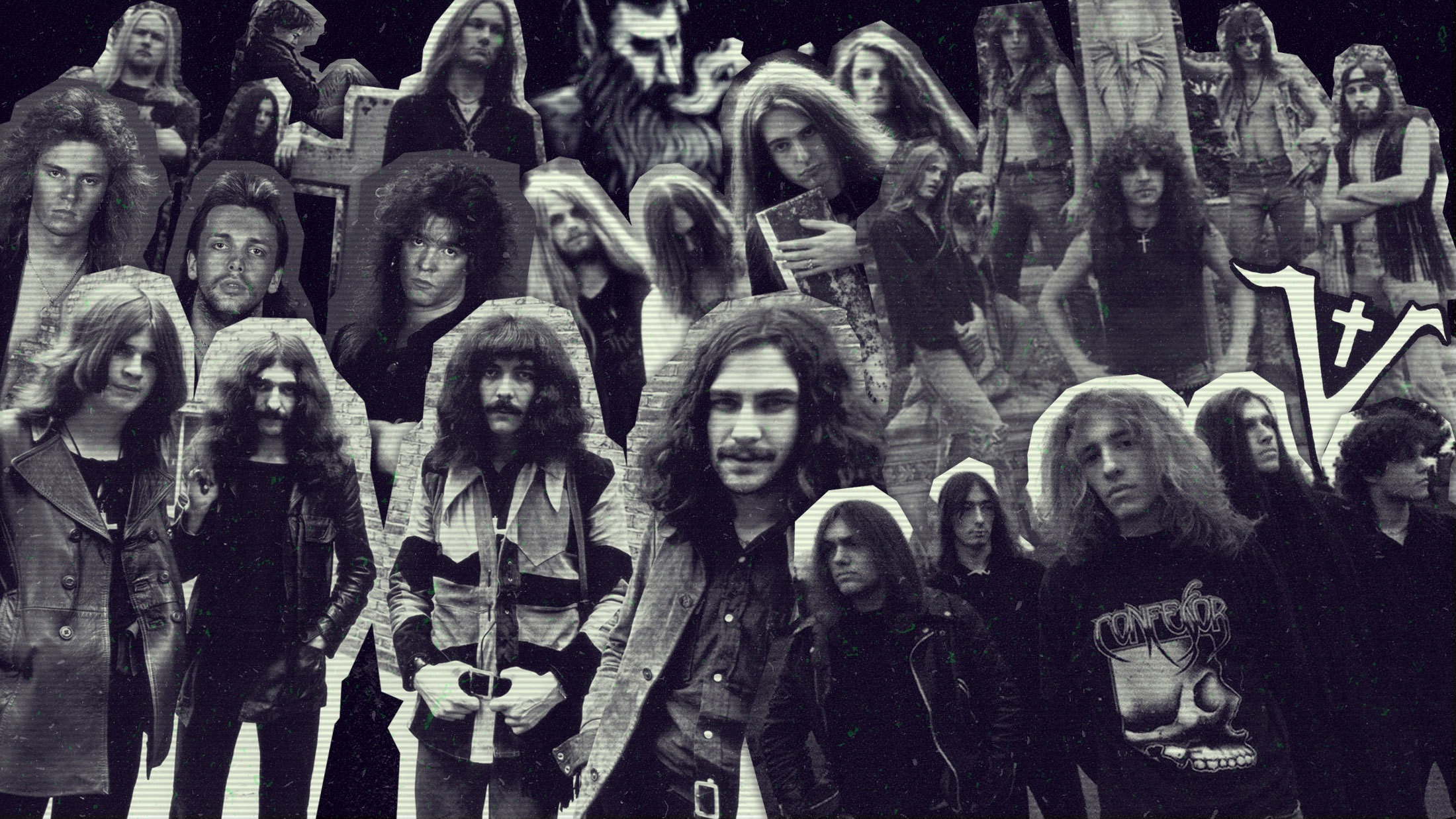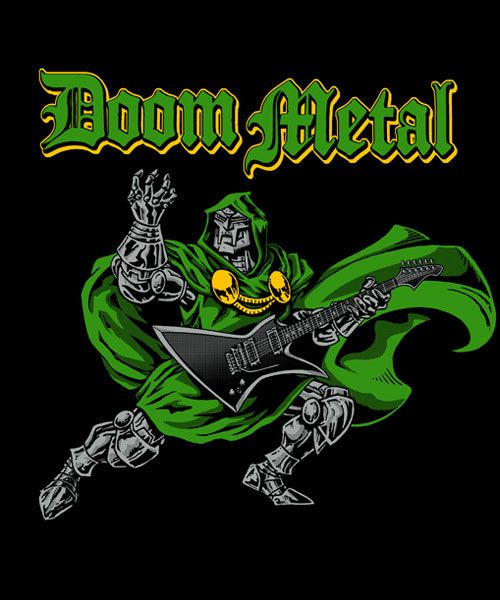Doom metal, with its heavy, slow, and brooding sounds, has long been a genre that intrigues and captivates. Its ability to evoke deep emotions and create a unique atmosphere makes it a powerful form of expression. For individuals who have been through the traumatic experience of grooming, music can serve as a form of solace, empowerment, and healing. However, the question arises: is doom metal good for people that were groomed? This article seeks to explore the intricate relationship between doom metal and its potential benefits for those recovering from grooming experiences.
In the vast world of music, different genres resonate with different people, providing a range of emotional responses. Doom metal, with its melancholic undertones and intense lyrical themes, offers a unique experience that may appeal to those seeking an outlet for their emotions. For individuals who have been groomed, the journey to recovery can be complex and multifaceted, often requiring various forms of support and understanding. Music, in its many forms, has been recognized as a therapeutic tool that can aid in emotional expression and release.
As we delve deeper into this topic, we aim to uncover the ways doom metal can serve as a positive influence for individuals who have been groomed. By examining its themes, emotional impact, and potential therapeutic benefits, we hope to provide insights into how this genre can contribute to healing and empowerment. This article will also address common questions and concerns, providing a comprehensive understanding of the role doom metal can play in the recovery process.
Table of Contents
Doom metal is a subgenre of heavy metal music that emerged in the late 1960s and early 1970s. It is characterized by its slow tempos, low-tuned guitars, and a heavy, dense sound that creates a sense of impending doom. The genre draws inspiration from early heavy metal bands like Black Sabbath, whose music often featured dark, somber themes.
Over the years, doom metal has evolved to include various subgenres, such as funeral doom, sludge metal, and drone doom, each bringing its own distinct elements to the forefront. Despite these variations, the core elements of doom metal remain its atmospheric sound and introspective lyrics that often explore themes of despair, existentialism, and the human condition.
For those unfamiliar with the genre, doom metal can initially seem overwhelming due to its intensity and the emotional weight carried by the music. However, its ability to evoke deep emotions and resonate with listeners on a personal level is what makes it a powerful form of expression for many.
The Experience of Grooming
Grooming is a manipulative process by which an individual builds a relationship, trust, and emotional connection with a child or vulnerable person to manipulate, exploit, and abuse them. This process can be subtle and gradual, making it difficult for the victim to recognize until it's too late. The psychological impact of grooming can be profound, leaving the victim with feelings of confusion, shame, and vulnerability.
Recovering from grooming is a complex journey that requires time, support, and understanding. It often involves addressing the trauma and rebuilding one's sense of self-worth and trust in others. Music, including genres like doom metal, can play a significant role in this healing process by providing an outlet for emotional expression and helping individuals process their experiences.
Emotional Impact of Music
Music has long been recognized for its ability to influence emotions and mood. It can evoke a wide range of feelings, from joy and excitement to sadness and introspection. For individuals who have experienced trauma, music can serve as a therapeutic tool that allows them to express and process their emotions in a safe and constructive manner.
Research has shown that music can have a profound impact on the brain, affecting areas related to emotion, memory, and cognition. Listening to music can trigger the release of neurotransmitters such as dopamine, which is associated with pleasure and reward. This can help individuals feel more connected to their emotions and provide a sense of comfort and relief.
The therapeutic benefits of doom metal are rooted in its ability to create a cathartic experience for the listener. The slow, heavy sound and introspective lyrics can provide a powerful outlet for expressing complex emotions such as anger, sadness, and despair. For individuals who have been groomed, doom metal can offer a sense of validation and understanding, helping them process their experiences and emotions.
Additionally, the immersive nature of doom metal can promote mindfulness and presence, allowing listeners to fully engage with their emotions without judgment. This can be especially beneficial for those who struggle with feelings of disconnection or numbness as a result of trauma.
Doom metal lyrics often explore themes of existentialism, despair, and the darker aspects of the human experience. These themes can resonate deeply with individuals who have experienced grooming, as they may reflect their own feelings of confusion, vulnerability, and loss of control.
While the themes may seem bleak, they can also offer a sense of solidarity and understanding. Knowing that others have explored similar emotions through music can help individuals feel less isolated and more connected to a larger community of listeners who share their experiences.
While doom metal can offer therapeutic benefits for some, it may not be suitable for everyone. The genre's intense sound and dark themes can be overwhelming for individuals who are sensitive to such content. It's important for individuals to consider their own emotional responses and preferences when exploring music as a form of therapy.
Some may find solace in the heaviness and introspection of doom metal, while others may prefer lighter, more uplifting genres. Ultimately, the effectiveness of music as a therapeutic tool depends on the individual's personal connection to the music and how it resonates with their emotions and experiences.
Case Studies and Real-Life Examples
Real-life examples of individuals who have found healing through doom metal can provide valuable insights into the genre's potential benefits. Personal stories of recovery and empowerment can highlight the ways in which doom metal has helped individuals process their emotions and reclaim their sense of self.
These case studies can also shed light on the diverse ways in which individuals engage with the genre, whether through active listening, songwriting, or participation in the doom metal community. Understanding these experiences can offer hope and inspiration to others who are navigating their own recovery journeys.
Expert Opinions on Music Therapy
Experts in the field of music therapy have long recognized the power of music to support emotional healing and well-being. Music therapists often use various genres of music to help clients explore their emotions, improve mood, and build coping skills.
While doom metal may not be a conventional choice in music therapy, its potential benefits should not be overlooked. Music therapists can work with clients to explore how the genre resonates with their emotions and experiences, tailoring interventions to suit individual needs.
Factors to Consider When Choosing Music
When selecting music for therapeutic purposes, individuals should consider factors such as personal preferences, emotional responses, and the intended goals of the music experience. It's important to choose music that resonates with one's emotions and provides a sense of comfort and validation.
It's also important to be mindful of how different genres and themes may impact one's emotional state. For some, the heaviness of doom metal may be grounding and cathartic, while for others, it may be overwhelming or triggering. Listening to one's own emotional responses and adjusting music choices accordingly is key to a positive therapeutic experience.
Integrating doom metal into therapy can be a collaborative process between the therapist and client. By exploring the client's personal connection to the genre, therapists can help facilitate discussions about the emotions and themes reflected in the music.
Therapists can also use doom metal as a tool for creative expression, encouraging clients to engage in activities such as songwriting, lyric analysis, or creating visual art inspired by the music. These activities can provide additional avenues for emotional exploration and healing.
Community and Support Networks
For individuals who have experienced grooming, finding a supportive community can be an important part of the recovery process. The doom metal community, known for its inclusivity and shared appreciation for the genre, can offer a sense of belonging and understanding.
Engaging with others who share similar musical tastes can provide opportunities for connection, discussion, and mutual support. Online forums, social media groups, and local music events can serve as platforms for individuals to connect with like-minded individuals and build a supportive network.
Frequently Asked Questions
While doom metal can offer therapeutic benefits, its intense sound and themes may not be suitable for everyone. It's important for individuals to consider their emotional responses and preferences when engaging with the genre.
Doom metal can provide a cathartic outlet for expressing complex emotions and offer a sense of validation and understanding. Its immersive nature can promote mindfulness and presence, helping individuals process their experiences.
Individuals should consider their personal preferences, emotional responses, and the intended goals of the music experience. It's important to choose music that resonates with one's emotions and provides a sense of comfort and validation.
Yes, music therapy can be a valuable tool in the recovery process. By exploring emotions through music, individuals can build coping skills, improve mood, and gain a deeper understanding of their experiences.
Individuals can find support by engaging with online forums, social media groups, and local music events. These platforms offer opportunities for connection, discussion, and mutual support within the doom metal community.
While working with a therapist can provide structured support, individuals can also explore the therapeutic benefits of music on their own. It's important to listen to one's emotional responses and adjust music choices accordingly.
Conclusion
The question of whether doom metal is good for people that were groomed is complex and multifaceted. While the genre can offer therapeutic benefits for some, it may not be suitable for everyone. Individuals must consider their own emotional responses and preferences when exploring music as a form of therapy.
Doom metal's ability to evoke deep emotions and create a cathartic experience can provide a valuable outlet for those recovering from grooming. By offering a sense of validation and connection, the genre can contribute to healing and empowerment. Ultimately, the effectiveness of doom metal as a therapeutic tool depends on the individual's personal connection to the music and how it resonates with their emotions and experiences.
Article Recommendations


ncG1vNJzZmiclaK8b7HNnqmgoaOirrPAjaemaJ6ipLu1uMinnKedp6h%2BeHvIrGSdp5%2Bieq6x05qjZp%2BfpLFuss6rZKmdn6W5pnnToZitZaeav6Z5xqumqKWVmXupwMyl